The Freedom Artist Read online
THE FREEDOM ARTIST
Ben Okri
Start Reading
About this Book
About the Author
Table of Contents
www.headofzeus.com
About The Freedom Artist
In a world uncomfortably like our own, a young woman called Amalantis is arrested for asking a question. Her question is this: Who is the Prisoner?
When Amalantis disappears, her lover Karnak goes looking for her. He searches desperately at first, then with a growing realization. To find Amalantis, he must first understand the meaning of her question.
Karnak’s search leads him into a terrifying world of lies, oppression and fear at the heart of which lies the Prison. Then Karnak discovers that he is not the only one looking for the truth.
The Freedom Artist is an impassioned plea for justice and a penetrating examination of how freedom is threatened in a post-truth society. In Ben Okri’s most significant novel since the Booker Prize-winning The Famished Road, he delivers a powerful and haunting call to arms.
Contents
Welcome Page
About The Freedom Artist
Dedication
Epigraph-1
Epigraph-2
Overture
Chapter 1
Chapter 2
Chapter 3
Chapter 4
Chapter 5
Chapter 6
Chapter 7
Book 1
Chapter 1
Chapter 2
Chapter 3
Chapter 4
Chapter 5
Chapter 6
Chapter 7
Chapter 8
Chapter 9
Chapter 10
Chapter 11
Chapter 12
Chapter 13
Chapter 14
Chapter 15
Chapter 16
Chapter 17
Chapter 18
Chapter 19
Chapter 20
Chapter 21
Chapter 22
Chapter 23
Chapter 24
Chapter 25
Chapter 26
Chapter 27
Chapter 28
Chapter 29
Chapter 30
Chapter 31
Chapter 32
Chapter 33
Chapter 34
Chapter 35
Chapter 36
Chapter 37
Chapter 38
Chapter 39
Chapter 40
Chapter 41
Chapter 42
Chapter 43
Chapter 44
Chapter 45
Chapter 46
Chapter 47
Book 2
Chapter 1
Chapter 2
Chapter 3
Chapter 4
Chapter 5
Chapter 6
Chapter 7
Chapter 8
Chapter 9
Chapter 10
Chapter 11
Chapter 12
Chapter 13
Chapter 14
Chapter 15
Chapter 16
Chapter 17
Chapter 18
Chapter 19
Chapter 20
Chapter 21
Chapter 22
Chapter 23
Chapter 24
Chapter 25
Chapter 26
Chapter 27
Chapter 28
Chapter 29
Chapter 30
Chapter 31
Chapter 32
Chapter 33
Chapter 34
Chapter 35
Chapter 36
Chapter 37
Chapter 38
Chapter 39
Chapter 40
Chapter 41
Book 3
Chapter 1
Chapter 2
Chapter 3
Chapter 4
Chapter 5
Chapter 6
Chapter 7
Chapter 8
Chapter 9
Chapter 10
Chapter 11
Chapter 12
Chapter 13
Chapter 14
Chapter 15
Chapter 16
Chapter 17
Chapter 18
Chapter 19
Chapter 20
Chapter 21
Chapter 22
Chapter 23
Book 4
Chapter 1
Chapter 2
Chapter 3
Chapter 4
Chapter 5
Chapter 6
Chapter 7
Chapter 8
Chapter 9
Chapter 10
Chapter 11
Book 5
Chapter 1
Chapter 2
Chapter 3
Chapter 4
Chapter 5
Chapter 6
Chapter 7
Chapter 8
Chapter 9
Chapter 10
Chapter 11
Chapter 12
Chapter 13
Chapter 14
Chapter 15
Book 6
Chapter 1
Chapter 2
Chapter 3
Chapter 4
Chapter 5
Chapter 6
Chapter 7
Chapter 8
Chapter 9
Chapter 10
Chapter 11
Chapter 12
Chapter 13
Chapter 14
Chapter 15
Chapter 16
Chapter 17
Chapter 18
Chapter 19
Chapter 20
Chapter 21
Chapter 22
Coda
Acknowledgements
About Ben Okri
Also by Ben Okri
An Invitation from the Publisher
Copyright
To Charlotte Jarvis
For the along
Read slowly
Everything sacred, that intends to remain so, must cover itself in mystery.
SENGHOR
Overture
1
It is written in the oldest legends that all are born in prison. This prison is all they know. Literature describes life in it. Religion hints at redemption from it. Having lived here all their lives, humans have ceased to see it as a prison.
‘This is all there is,’ the realists said, ‘so we might as well make the most of it.’
That had been the dominant thought for thousands of years. Under its influence humans had created civilisations all over the world. They had waged wars, erected pyramids and punctuated the silent text of the earth with temples.
To create a reality more real than the world was their idea of perfection. Music filled the lands with the sistrum and the lyre, the flute and the drum. They created music of such beauty that they temporarily forgot their underlying misery. Their civilisations became so successful that they forgot they were in prison. They began to think they were free.
2
Through the years of living and dying people forgot they were in prison. But they could not reconcile the splendour of their condition with the underlying misery of their lives, as they emerged on earth and retreated into dust. They felt the misery even in the splendour.
From time to time they heard rumours, whispered by poets and uttered by the mad, that they were all prisoners. They were born that way and would die that way. These rumours bothered the people.
Every now and then a philosopher, poring over the ancient legends, would come upon a fragment of the founding myth. One such philosopher, sharing his discovery, wrote:
‘Humans are born in prison, a
nd everywhere think they are free.’
This caused shock-waves across the world. It became necessary for the authorities to proscribe these ideas or to distort them.
They need not have bothered. People do not believe that which does not please them. They preferred new myths which celebrated their freedom.
This state of affairs continued for a long time. There were wars, famines, floods, economic disasters and all the vicissitudes which attend the human estate.
Things might have gone on in the same way were it not for an event which disturbed their age-old certainties.
3
One day a man stared at the reflection of the sun in a lake. Lost in reverie, he found himself somewhere he had never been before. It was nothing like the earth. When he came back to himself he was still sitting by the lake. He told some friends about this experience, but they regarded it as a lapse of the mind.
On a splendid moonlit night a young girl was reading one of the old myths. While she read she found herself on the bank of a river of light. It was like nowhere on earth. Its beauty startled her back to the room where she had been reading. She told the experience to her parents and they said she must have been daydreaming.
These anomalies were never reported to the authorities. They never appeared in the rumour sections of the newspapers. But they began the age of disquiet.
Not long afterwards, on a cold and silent night, a cry was heard. Someone had escaped the prison of the world. The cry announced the extraordinary life beyond. This was not a cry of lamentation, but of exultation. It was heard on the edge of the desert. It was heard once and never again. That one cry was enough to infect the world with unease.
4
There are few things as haunting as a question posed in the night. For the first time in centuries the notion that the world was a prison was heard again. The founding myth, long forgotten, was beginning to speak.
New versions of the founding myth had been gaining mysterious circulation. In some versions it wasn’t the earth that was the prison, it was the universe. For many this was an intolerable notion. Some thought it funny that people who accepted the limits of the earth could not accept the confinement of the universe. Which was better, they asked: to be free on earth or a prisoner in the universe?
Then a radical version of the founding myth appeared. It was not the earth or the universe that was the prison, it was the body.
This was one prison too many and riots broke out everywhere. The authorities tried to suppress these subversive ideas. The police confiscated large numbers of books. They imprisoned publishers and booksellers. They destroyed all forms of printing. These versions of the founding myth were burnt in public squares. People were forbidden to read them, under punishment of death.
5
But it was too late. The damage had been done. The idea had entered the bloodstream of the world. A few people, who were terminally ill anyway, took their lives because they wanted to escape the prison of their bodies. The idea made life for them not worth living.
Questions began to roam the world. If you are a prisoner in your body, how can you find freedom? Who put you in the prison of your body? If you are in the prison of your body, who is the prisoner?
The last question caused the greatest perplexity of all. One night the question appeared on the walls of buildings. It flowered on the streets, was painted on cars and billboards, stencilled on walls, spray-painted on buses. The question was everywhere.
WHO IS THE PRISONER?
At this point, the authorities decided to act. Things had gone too far. The questions had begun to induce lethargy, despair, rebellion and riots in the populace. The perpetrators of these intolerable questions had to be found and destroyed so that society might recover its equilibrium. Spies and informers infiltrated the populace to root out those responsible for what was becoming known as the age of anxiety.
6
It is written, in a lesser legend, that in a prison the size of a country there were prisoners who had been there for generations. Their original crimes had been forgotten in the fog of time. Families gave rise to families and were scattered through the length and breadth of the vast prison. There were whole tribes of eternal prisoners.
At first the prison was modest. Then the accumulation of acts designated as crimes led to an astronomical multiplication of prisoners. Anything could be a crime: deviation from normal thought, unusualness in dress, questions about the nature of time, speculations about the nature of the soul, paintings that distort reality, writings that cause unease, the inclination to think too much. The most serious crimes were those that questioned the nature of reality.
At some time or other most people found themselves on the wrong side of the law. It became necessary to extend the prison till it took on the proportions of a country. Then it was proposed that an entire continent be devoted to containing the exploding criminal population that was humanity. Soon there were more people in prison than outside it.
The prison became the world.
7
Meanwhile there were catastrophes across the earth. Sea levels had risen. Forests had become sparse. Trees and flowers were perishing everywhere. Tropical countries had become cold, and the cold countries had become hot.
The rich had taken over the earth. They lived in heavily fortified houses while the poor fought for food, marauded the streets, and slept in the open.
Books had become rare. All knowledge existed in immaterial form. Centuries of being attached to the machine had atrophied the languages of the earth. Slowly the races returned to a primitive form of speech. Ideas were communicated in grunts. Shrugs and facial expressions were the new vocabulary.
The few that retained the power of language kept to themselves. Lest their ability drew scorn upon them, they didn’t speak in public. The economy was managed by a handful of super-bankers. Newspapers ceased to exist. Except as organs of the state. Television was run by the people. Programmes consisted of the daily life of the populace. Radio stations had fallen to ranters. Day-long harangues dominated the airwaves.
Anomie had spread across the world.
Book 1
1
In a yellow house an old man was being read to by a boy. They took turns reading to one another, and now it was the boy’s turn. The boy’s name was Mirababa. He was reading the tale of the child who climbed a ladder that led to another world where he was given magic gifts by giants.
He stopped reading for a moment.
‘Is it true,’ he said, ‘that there is another world beyond ours?’
The old man was silent for a long time. Mirababa was used to these silences and had learnt to read them. From the old man’s silence this is what the boy read: ‘It was asking questions that got our ancestors into this place. Yet you go on asking them?’
This is what the boy sensed all his life whenever he asked a question that was not answered. He came to understand that questions were not answered by answers. They were answered by subtleties of silence.
Mirababa was about to go on reading when to his surprise the old man began to speak. He spoke in a rasping, but soothing voice. It may have been approaching death that moved the old man to such an uncharacteristic act.
‘One day, my boy, you must take a leap into the unknown and discover what has been hidden from us…’
The old man paused. Mirababa heard, in the silence that followed, the beating of an eagle’s wing outside the window. For a moment he heard his own heartbeat. The old man had not answered his question, but had only caused him to listen more intently to the silence.
Mirababa absorbed the silence for a while and then began reading again. He had read no more than a few words when the old man interrupted him.
‘The only way to go beyond is to go in.’
‘Go in?’
‘Where did the child go, in the story you’ve been reading to me?’
‘He climbed up a ladder to another world.’
‘Where did he go?’
> ‘Up.’
‘Up is in.’
The old man paused.
‘Do you remember the tale I read to you about the hero who was trying to get back home?’
‘The one where he blinded a one-eyed giant and listened to the siren’s songs?’
‘That one. Where was he going?’
‘Home.’
‘Going home is going in.’
‘In to where?’
The old man paused. This time he shut his eyes as if weary. The boy began listening to the silence, but the old man said:
‘Don’t be like the rest of us. Follow your nature. Follow your questions. Those who try to escape prison end up in another one. Escape that one and they find themselves in another. This world is a succession of prisons and there is no escaping the prison of the world. In our family we have broken out of the prison beyond prison and the prisons beyond that. I’m the last in the line.’
The old man paused, eyes still shut. His voice was lower when he began speaking again.
‘I know that the solution is not out there. For there are only prisons followed by prisons, to the horizon of all things. Astronauts who have been to outer space have not been able to escape the prison of the universe. We have tried every way, except one.’
‘Which one is that, Grandad?’
‘I am an old man listening to what the eagle’s wing says.’
‘What does the eagle’s wing say?’
‘It says it’s time to go home.’
‘But you are home.’
‘I’m an old man who has spent his life in prison and dreams only of freedom.’
‘What is freedom, Grandad?’
‘I dream of the source of the sea. Your voice reminds me of home.’ The old man’s voice was growing fainter. ‘I won’t live to see the face of the full moon. Listen to me. This is what was handed down to me by the heroes of old. Everything we need to know is concealed in what we most take for granted. Everyone has sought this elixir called freedom. They have sought it for thousands of years. There have been rumours that one unique person found it and passed on the secret in clues hidden in the ancient myths. Apparently two or three other people have found it too, but we don’t know for sure. No one has found it from the ancient times till now.’

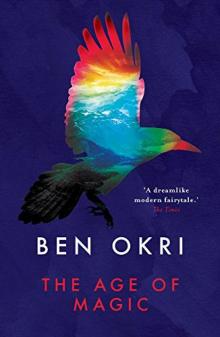 The Age of Magic
The Age of Magic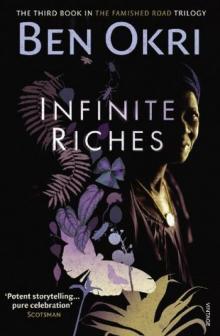 Infinite Riches
Infinite Riches Songs of Enchantment
Songs of Enchantment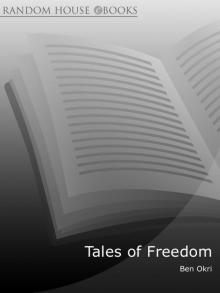 Tales of Freedom
Tales of Freedom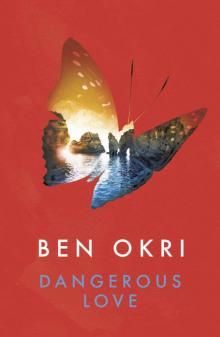 Dangerous Love
Dangerous Love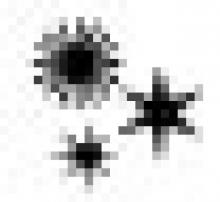 Starbook
Starbook The Famished Road
The Famished Road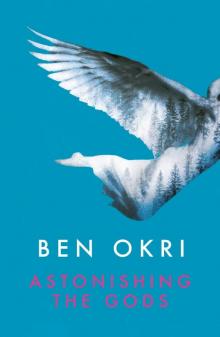 Astonishing the Gods
Astonishing the Gods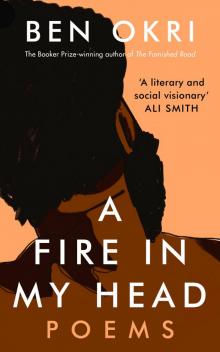 A Fire in My Head
A Fire in My Head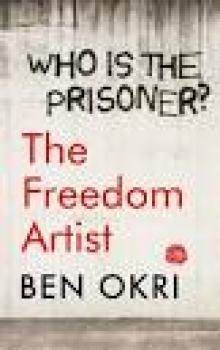 The Freedom Artist
The Freedom Artist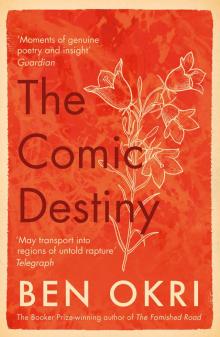 The Comic Destiny
The Comic Destiny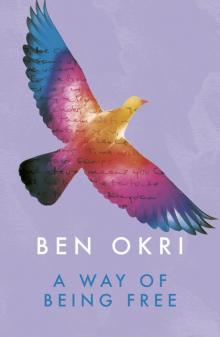 A Way of Being Free
A Way of Being Free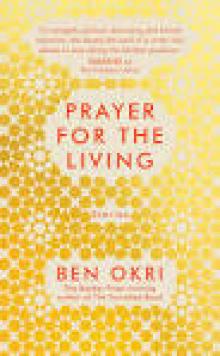 Prayer for the Living
Prayer for the Living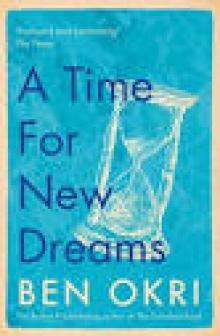 A Time for New Dreams
A Time for New Dreams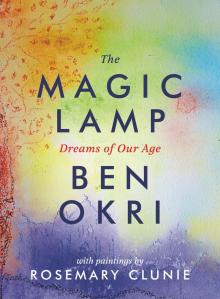 The Magic Lamp
The Magic Lamp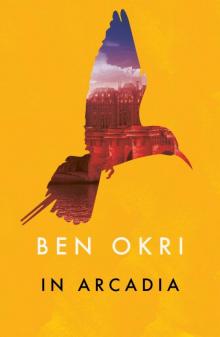 In Arcadia
In Arcadia